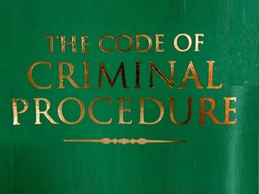Affidavit of errors is required in order to file an appeal when no stenographer was present in the court
People v Smith
New York Court of Appeals
27 N.Y.3d 643
Decided on June 23, 2016
 Issue: Whether a defendant convicted in a local court, which is not designated as a court of record where no court stenographer was present, is required to submit an affidavit of errors in order to appeal their case.
Issue: Whether a defendant convicted in a local court, which is not designated as a court of record where no court stenographer was present, is required to submit an affidavit of errors in order to appeal their case.
Holding: The Court of Appeals concluded that CPL 460.10 requires that an affidavit of errors must be submitted in order to take an appeal from the local criminal court in the case where a court stenographer is not present. Ultimately, the Court held that both cases should have ultimately been dismissed for failure to file an affidavit of errors.
Facts: People v Smith and People v Ramsey contain similar facts in that the local courtroom in each case only implemented an electronic recording device?not a court stenographer, each defendant filed an appeal, and each defendant failed to file an affidavit of errors.
Following Smiths file of appeal, the People then argued that Smiths appeal should be dismissed since he did not file an affidavit of errors pursuant to CPL 460.10 (3). The Appellate Term retorted by stating that an electronic recording device is equally functional to that of a court stenographer. The Appellate term dismissed the charge; however, the New York Court of Appeals granted the People leave to appeal (24 NY3d 1005 [2014]).
Similarly to People v Smith, the People argued to dismiss Ramseys appeal, only this time, the Peoples motion was granted. However, the transcriber indicated inaudibility during parts of the recording, and the court deemed Ramseys plea unclear. In this case, the New York Court of Appeals granted Ramsey leave to appeal (26 NY3d 1010 [2015]).
 Legal Analysis: In each of these cases, the New York Court of Appeals held opposite judgments. The Court now recognizes that the language of CPL 460.10 is clear, and the appeals of both Smith and Ramsey should have been dismissed.
Legal Analysis: In each of these cases, the New York Court of Appeals held opposite judgments. The Court now recognizes that the language of CPL 460.10 is clear, and the appeals of both Smith and Ramsey should have been dismissed.
The Court of Appeals found that CPL 460.10 provides two divergent procedures for the taking of a criminal appeal from a local court, and their application is dependent on the presence or absence of a court stenographer at the underlying proceedings (see??CPL 460.10 [1], [2], [3]). Although CPL 460.10 does not provide a definition of court stenographer, article 9 of the Judiciary Law does, and it further defines the role of the stenographer in the proceedings. According to the Judiciary Law, a stenographer is an officer of the court who must file a constitutional oath of office (see??Judiciary Law 290, 294). Each stenographer “must take full stenographic notes of the testimony and of all other proceedings”?{**27 NY3d at 649} and “shall take complete stenographic notes of each ruling or decision of the presiding judge, and when the trial is by jury each and every remark or comment of such judge during the trial” as well as the exceptions to each ruling (id.? 295).
The Court of Appeals held that CPL 460.10 is “free from ambiguity and express[es] plainly, clearly and distinctly the legislative intent” (McKinney’s Cons Laws of NY, Book 1, Statutes 76) that, where the underlying proceedings are not recorded by a court stenographer, a defendant must file an?[*5]affidavit of errors. Thus, defendants’ failure to do so is a jurisdictional defect requiring dismissal.
CPL 460.10 (3): An appeal taken as of right to a county court or to an appellate?term of the supreme court from a judgment, sentence or order of a local criminal court in a case in which the underlying proceedings were not recorded by a court stenographer is taken as follows: (a) Within thirty days after entry or imposition in such local?criminal court of the judgment, sentence or order being appealed, the appellant must file with such court either (i) an affidavit of errors, setting forth alleged errors or defects in the proceedings which are the subjects of the appeal, or (ii) a notice of appeal. Where a notice of?appeal is filed, the appellant must serve a copy thereof upon the respondent in the manner provided in paragraphs (b) and (c) of subdivision one, and, within thirty days after the filing thereof, must file with such court an affidavit of errors.
 The statute unmistakably directs the appellant to file an affidavit of errors within 30 days of filing of appeal when no court stenographer is present. Therefore, even though the Appellate Term attempted to argue that the electronic recording device served the equivalent functionality of that of a court stenographer, the clarity of CPL 460.10 (3) overrides the argument.
The statute unmistakably directs the appellant to file an affidavit of errors within 30 days of filing of appeal when no court stenographer is present. Therefore, even though the Appellate Term attempted to argue that the electronic recording device served the equivalent functionality of that of a court stenographer, the clarity of CPL 460.10 (3) overrides the argument.
The right to a criminal appeal in New York is statutory, and the failure to file an affidavit of errors in both cases above prevented the appeal from being properly taken by either of the intermediate appellate courts. The Court held that both cases should have ultimately been dismissed for failure to file an affidavit of errors.
